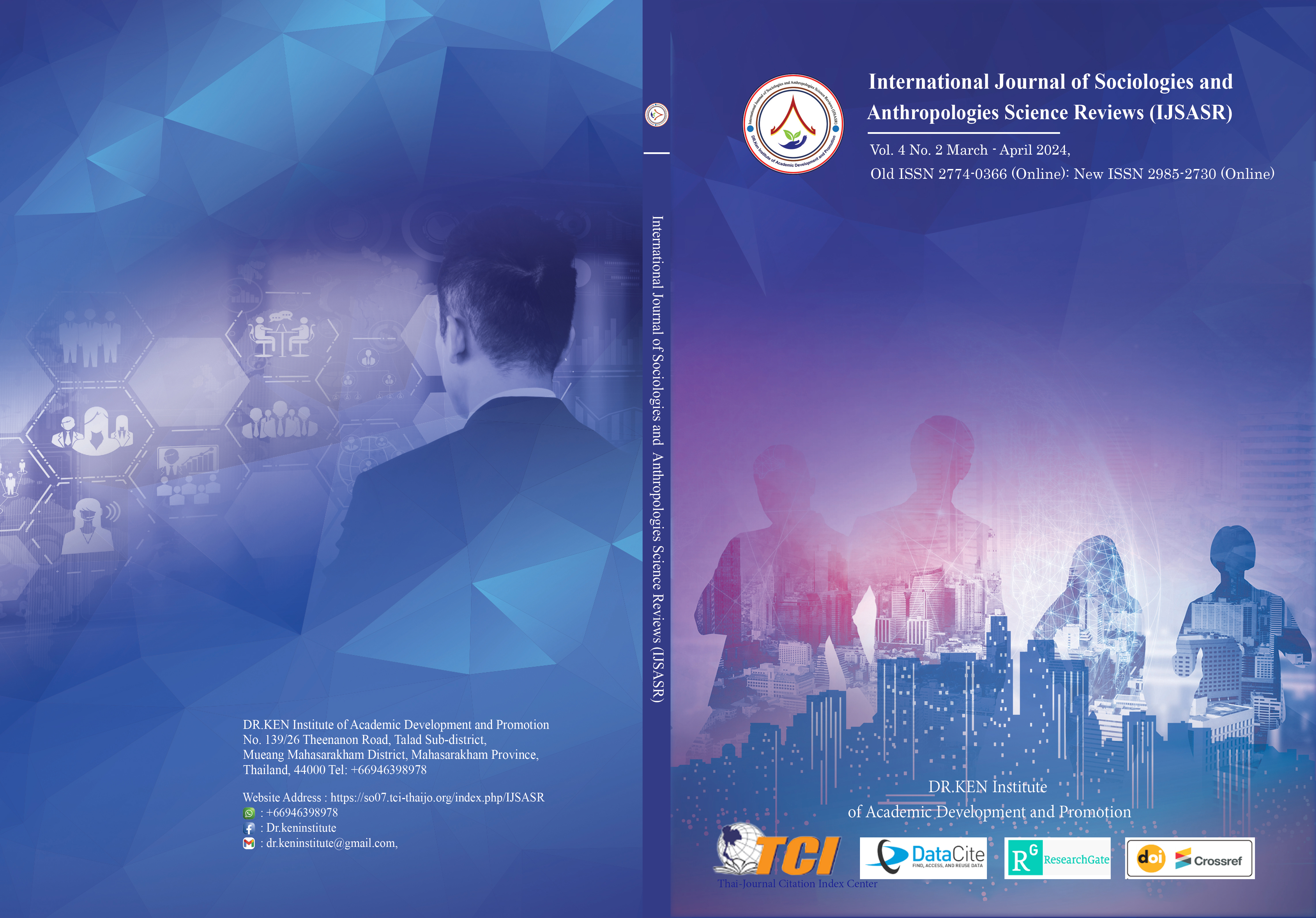The Perspectives On Piano Teaching Strategies At Qingdao Art School in Shandong Province
Main Article Content
Abstract
Background and Aim: Qingdao Art School is implementing a holistic piano education approach, combining traditional and modern techniques to prepare students for the evolving musical world and develop diverse skills.
Materials and Methods: This study aimed to survey teacher’s perspectives on piano teaching strategies at Qingdao Art School. This study used qualitative research methodology, including semi-structured interviews with piano teachers at Qingdao Art School, to understand their teaching methods. Key areas of focus included pedagogical approaches, experiences with different strategies, challenges faced, and perspectives on effectiveness. The interview guideline was used to gather in-depth insights, with eight questions posed to experts. Data was collected through semi-structured interviews, with essential analysis steps including thematic coding, theme grouping, direct interpretation, and data presentation.
Results: The text provides a comprehensive guide to teaching music theory, focusing on various pedagogical approaches. It suggests blended learning, collaborative projects, improvisational techniques, diverse musical genres, and gamification for accessibility. Challenges in teaching include adaptive teaching strategies, personalized music selection, practice routines, classroom community building, and integrating new technologies. Methods are promoted through active learning, digital resources, and flexible scheduling. Technology integration is highlighted, with music software, virtual performances, and AR/VR tools. Professional development opportunities are discussed, and student engagement and motivation are discussed. Evaluation and feedback are also discussed, considering technical skills and musical expression.
Conclusion: The text offers a comprehensive guide to teaching music theory, highlighting various pedagogical approaches and challenges, while promoting active learning, digital resources, and technology integration.
Article Details

This work is licensed under a Creative Commons Attribution-NonCommercial-NoDerivatives 4.0 International License.
Copyright on any article in the International Journal of Sociologies and Anthropologies Science Reviews is retained by the author(s) under the under the Creative Commons Attribution-NonCommercial-NoDerivatives 4.0 International License. Permission to use text, content, images, etc. of publication. Any user to read, download, copy, distribute, print, search, or link to the full texts of articles, crawl them for indexing, pass them as data to software, or use them for any other lawful purpose. But do not use it for commercial use or with the intent to benefit any business.

References
Abankwa, J., & Mikkilä-Erdmann, M. (2018). Piano teacher education in Finland and Germany: Targeted competencies and respective learning environments of two cases. International Journal of Music Education, 36(4), 616-629.
Benitt N., Schmidt T., & Legutke M.K. (2019). Teacher Learning and Technology-Enhanced Teacher Education. In: Gao X. (eds) Second Handbook of English Language Teaching. Springer International Handbooks of Education. Springer, Cham. DOI:10.1007/978-3-319-58542-0_58-1
Fisher, C. (2010). Teaching piano in groups. Oxford University Press.
Girard, O., Mendez-Villanueva, A., & Bishop, D.H. (2011). Repeated-Sprint Ability Part I: Factors Contributing to Fatigue. Sports Medicine, 41(8), 673-94. Doi: 10.2165/11590550-000000000-00000.
Guo, Z.S. (2019). Challenges and Resolution Strategies Faced by Enterprise Auditing in the Background of Big Data. Economist, 9, 130-132.
Hamond, L., Himonides, E., & Welch, G. (2020). The nature of feedback in higher education studio-based piano learning and teaching with the use of digital technology1. Journal of Music Technology & Education, 13(1), 33-56.
Hietanen, L., Sepp, A., & Ruismäki, H. (2022). Music lecturers’ professional development through distant coteaching between two universities in Finland. Research Studies in Music Education, 44(2), 363-379.
Kong, Q., Li, B., Chen, J., & Wang, Y. (2020). Giantmidi-piano: A large-scale midi dataset for classical piano music. Transactions of the International Society for Music Information Retrieval. arXiv preprint arXiv:2010.07061.
Lishi, P. (2022). Creating A Guidebook for Piano Duet Performance in Shenzhen, China. Master of Music (Music) Faculty of Music, Bangkokthonburi University.
Liu, X. C., Wang, I. T., & Wong, K. Y. (2022). The Effectiveness of Suzuki Piano Teaching Method in Adult Beginner Piano Class. Sciences, 12(5), 118-130.
Morijiri, Y. (2016). The perceived influences of private teachers on pianists’ expertise in learning stages. Proceedings of the 26th International Seminar of the ISME Commission on Research, London 18-22 July 2016.
O'Neill, M. (2018). The art and science of investigation. In book: In Milne, B, & Griffiths, A. (eds). Psychology of Criminal Investigation: from Theory to Practice. Routledge.
Shuo, C., & Xiao, C. (2019). The construction of an internet+ piano intelligent network teaching system model. Journal of Intelligent & Fuzzy Systems, 37(5), 5819-5827.
Simones, L., Schroeder, F., & Rodger, M. (2015). Categorizations of physical gesture in piano teaching: A preliminary inquiry. Psychology of Music, 43(1), 103-121.
Siyu, L. (2022). Preparing to Become A Professional Pianist In Chengdu, The People's Republic of China. Master of Music (Music) Faculty of Music, Bangkokthonburi University.
Steele, A.L., & Fisher, C. (2011). Adaptive piano teaching strategies: for the physically and cognitively handicapped piano student. The American Music Teacher, 60(4), 22-23.
Tao, L. (2019). An Integration of East and West: History, Analysis, and Reception of the Yellow River Piano Concerto. Louisiana State University and Agricultural & Mechanical College. https://repository.lsu.edu/gradschool_dissertations/5059
Yu, Q. (2017). The Development of Qingdao Piano Art in Shandong Province (1940-1966). In 2017 International Seminar on Social Science and Humanities Research (SSHR 2017) (pp. 438-442). Atlantis Press.
Zheng, Y., Tian, T., & Zhang, A. (2022). Training strategy of music expression in piano teaching and performance by intelligent multimedia technology. International Transactions on Electrical Energy Systems, Article ID 7266492, https://doi.org/10.1155/2022/7266492






